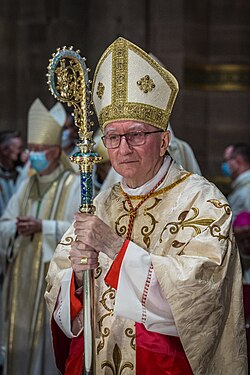Background and Experience
Born on January 17, 1955, in Schiavon, Italy, Pietro Parolin was ordained a priest in 1980. He earned a doctorate in canon law and entered the Vatican's diplomatic service in 1986, serving in Nigeria, Mexico, and as the Vatican's representative to the United Nations in New York.
In 2009, Pope Benedict XVI appointed him as Apostolic Nuncio to Venezuela. In 2013, Pope Francis named him Secretary of State, making him the Vatican's top diplomat and effectively the second-highest ranking official in the Church hierarchy. He was created a cardinal in 2014.
As Secretary of State, Parolin has been instrumental in negotiating diplomatic breakthroughs, including the historic 2014 restoration of relations between the United States and Cuba, the 2018 provisional agreement with China on the appointment of bishops, and various peace initiatives in conflict zones around the world.
"Dialogue is not a sign of weakness. On the contrary, it expresses the Church's conviction that there is a seed of truth in everyone and that this seed can grow through encounter and conversation."
— Cardinal Pietro Parolin
Key Agenda Items
Vatican Reform and Governance
Cardinal Parolin has been a key architect of Pope Francis's reforms of the Roman Curia, working to make Vatican governance more efficient, transparent, and accountable. He has emphasized the need for financial transparency and has supported efforts to address corruption within Vatican institutions.
If elected Pope, Parolin would likely continue these reform efforts, focusing on streamlining bureaucracy, improving financial management, and ensuring that the Vatican's governance structures better serve the global Church.
Diplomatic Engagement
As a career diplomat, Parolin has emphasized the importance of the Church's diplomatic engagement with both state and non-state actors. He believes in the power of dialogue to resolve conflicts and has worked to position the Vatican as a neutral mediator in international disputes.
His agenda includes strengthening the Vatican's diplomatic corps, expanding its role in peace processes, and using diplomatic channels to advocate for human rights, religious freedom, and the protection of vulnerable populations.
Relations with China
Cardinal Parolin has been the primary architect of the Vatican's controversial approach to China, which culminated in the 2018 provisional agreement on the appointment of bishops. He has defended this agreement as a necessary step toward normalizing the situation of Catholics in China, despite criticism from those who see it as a compromise with an authoritarian regime.
If elected, Parolin would likely continue efforts to improve relations with China and other countries where Catholics face restrictions, believing that engagement rather than confrontation is more likely to lead to improved conditions for the faithful.
Balancing Tradition and Reform
Unlike some candidates who are clearly aligned with either the progressive or conservative wings of the Church, Parolin has positioned himself as a moderate who respects tradition while being open to necessary reforms. He has supported Pope Francis's more pastoral approach while also emphasizing doctrinal continuity.
His agenda includes finding a middle path that acknowledges the legitimate concerns of traditionalists while continuing the reforms initiated by Pope Francis, particularly in areas such as synodality, environmental stewardship, and outreach to marginalized groups.
Global Economic Justice
Cardinal Parolin has frequently spoken about the need for a more just global economic system. He has criticized unfettered capitalism and has called for economic policies that prioritize human dignity, environmental sustainability, and the common good.
His economic agenda includes advocating for debt relief for developing nations, promoting sustainable development goals, addressing climate change as an economic issue, and encouraging ethical investment practices by Catholic institutions.
